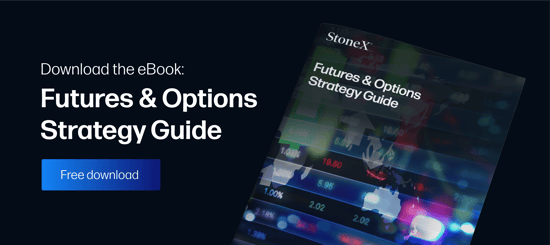Stocks, forex pairs, cryptocurrencies, and futures contracts provide active traders countless opportunities. Given the diversity of alternatives, one question rises above the rest: Which market should I trade?
Let’s take a look at two of the most popular assets out there—stocks and futures—and the reasons for trading each.
Why trade futures?
A futures contract is a financial derivative product that offers traders a collection of unique benefits. Whether you’re interested in listings on the Chicago Mercantile Exchange (CME) or the Chicago Board Options Exchange (CBOE), rest assured that a suitable contract is readily available.
So, why trade futures? Here are four advantages exclusive to these exciting products:
- Capital Efficiency: Vastly reduced margin requirements give traders the ability to control positions in the market far in excess of dedicated risk capital.
- Extended Trading Hours: The futures markets are open for electronic trading 23 hours per day, six days per week.
- Multiple Asset Classes: Contracts facing metals, energies, currencies, bonds, and equities indices are all publicly tradable.
- Volatility: A futures contract is designed to reflect the price of an underlying asset at some forthcoming point in time. Accordingly, volatility stemming from current events, traditional market drivers, and public sentiment is consistently present.
For active traders, the futures markets are target-rich environments. The combination of volatility, leverage, and a 23-hour trading day gives participants the ability to apply many different strategies. When approached with proper risk management, the answer to “why trade futures?” is simple: to make money!
Why trade stocks?
Since the dawn of the 20th century, many traders have sought fortune on the New York Stock Exchange (NYSE). Now, any aspiring stock market baron can trade the two premier equities exchanges on the planet, the NYSE and NASDAQ, from the comfort of their own home.
Like futures, stocks also offer traders several exclusive benefits:
- Investment: Stocks have no expiration or rollover date. As long as the company in question remains solvent, shares may be held into perpetuity. This makes equities ideal for buy-and-hold investment strategies.
- Portfolio Management: The NYSE (2,800) and NASDAQ (3,300) have hundreds of tradable stocks. From a diversification perspective, there are infinite ways to manage risk and tailor a stock portfolio’s sectoral exposure.
- Ease of Entry: The rise of zero-commission brokerage services has vastly lowered the barriers of entry into the equities markets. Now, traders can open an account free of minimums, deposit and withdraw funds via ACH transfer, and buy and sell stocks remotely.
If you’re looking to grow capital over a long period of time, then stocks are a great way to do so. With no expiration dates, thousands of options, and low barriers of entry, equities are powerful investment vehicles.
What are the advantages of trading stocks vs. futures?
Still stuck on the why trade futures/why trade stocks quandary? Perhaps this table can help get you organized:
| Futures |
|
|
| Stocks |
|
|
Ultimately, the question of why trade futures versus stocks boils down to suitability. If you’re looking for capital efficiency, constant volatility, and a variety of asset classes, then futures may be for you. If you want to execute buy-and-hold strategies over time, then stocks may be the way to go.
This blog was originally published on July 20, 2011, and has been updated for accuracy and comprehensiveness.


